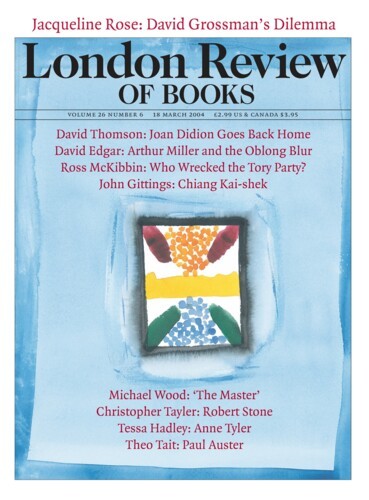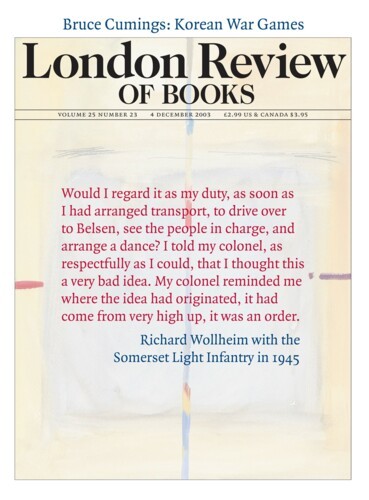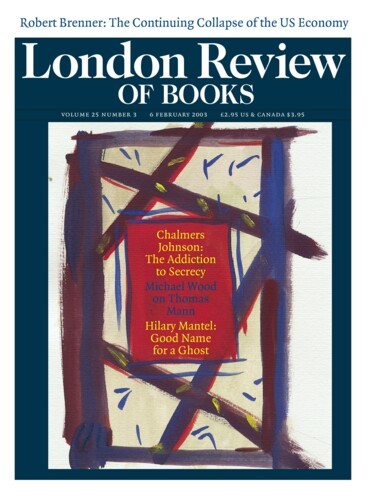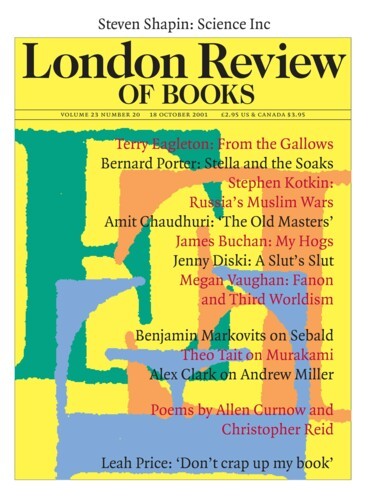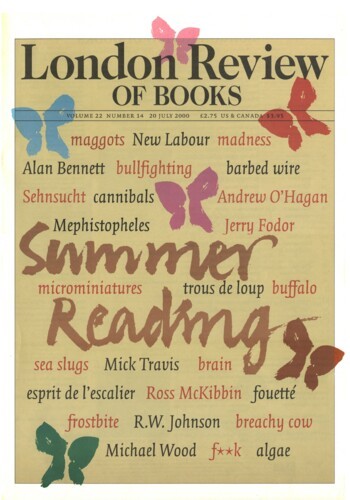Who are you? Paul Auster
Theo Tait, 18 March 2004
For a long time, Paul Auster’s novels were much more popular in France than in America. Perhaps this is because he sounds more convincing in French. ‘Ecrivain de la mégapole, de l’errance et du hasard, Paul Auster est devenu un auteur culte,’ one Parisian blurb-artist writes, catching the appeal in a way that his English-speaking counterparts find difficult....
